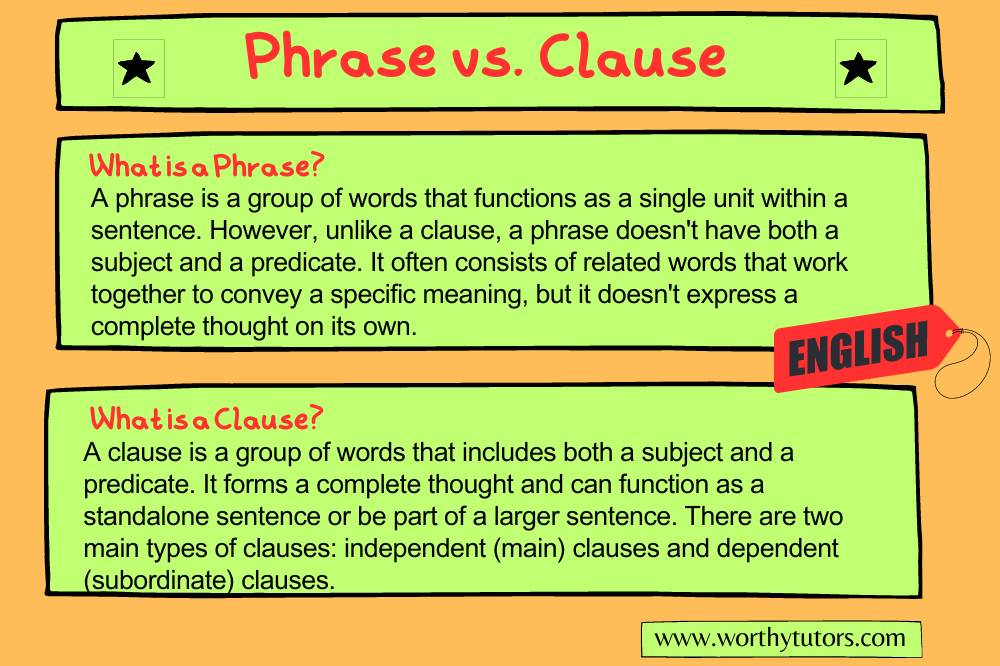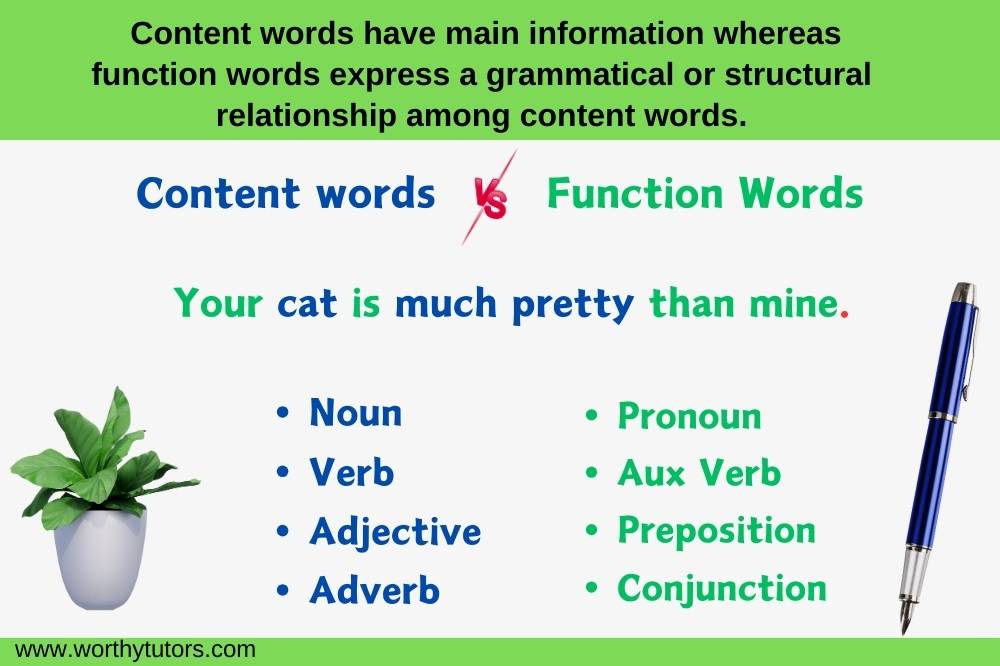
When we talk and write in English, there are two important things to know: phrases and clauses. These are like the building blocks of our sentences, helping us share ideas. While both are groups of words, they work differently. In this article, we’ll learn about phrases and clauses, what makes them special, and how they help us speak and write better in English.
What is a Phrase?
A phrase is a group of words that functions as a single unit within a sentence. However, unlike a clause, a phrase doesn’t have both a subject and a predicate. It often consists of related words that work together to convey a specific meaning, but it doesn’t express a complete thought on its own.
Examples of phrases:
- Noun Phrase: The black cat with green eyes.
- Prepositional Phrase: She went to the park for a walk.
- Verb Phrase: He is reading a fascinating book.
- Adjective Phrase: The cake is very delicious.
- Adverbial Phrase: They danced under the moonlight.
What is a Clause?
A clause is a group of words that includes both a subject and a predicate. It forms a complete thought and can function as a standalone sentence or be part of a larger sentence. There are two main types of clauses: independent (main) clauses and dependent (subordinate) clauses.
Examples of clauses:
- Independent Clause: She enjoys painting.
- Dependent Clause: Because it was raining, they stayed indoors.
- Compound Clause: He wanted to go swimming, but he forgot his swimsuit.
Differences between Phrase and Clause
Composition:
A phrase is a group of related words without a subject and predicate.
A clause is a group of words containing both a subject and a predicate.
Completeness:
A phrase doesn’t convey a complete thought on its own.
A clause expresses a complete thought and can stand alone as a sentence.
Types:
Phrases are categorized based on their function (noun, verb, etc.).
Clauses are categorized based on their independence (independent or dependent).
Examples of Phrases and Clauses in Sentences and Paragraphs
Sentence with Phrases:
- On top of the hill, there stood a quaint cottage with a red roof.
- The dog played in the garden and then took a nap under the shady tree.
Paragraph with Clauses:
- When the sun sets, the sky turns a brilliant shade of orange. (Dependent clause)
- People gather in parks to enjoy the evening breeze. (Independent clause)
- Although it can get chilly, families still have picnics and children fly kites. (Dependent clause)
Rules for Using Phrases and Clauses
- Use phrases to add descriptive or modifying information to a sentence.
- Use clauses to express complete thoughts or to provide additional information.
- Ensure that clauses have a subject and a predicate to form a complete thought.
Exercise for Practice
Identify whether the following groups of words are phrases or clauses. If they are clauses, determine whether they are independent or dependent.
After the rain stopped, the children went outside to play.
- The mountain climber scaled the peak with great determination.
- Because she studied diligently, she aced the exam.
- Under the old bridge, a hidden treasure was discovered.
- He loves to swim, but his brother prefers to surf.
This exercise will help students reinforce their understanding of phrases and clauses in various contexts.
Conclusion
In English grammar, understanding the distinction between phrases and clauses is essential for effective communication. While phrases enrich sentences by contributing descriptive elements, clauses serve as the building blocks of complete thoughts. Phrases, comprising various types like noun phrases, verb phrases, and more, play a pivotal role in adding depth and color to language. Clauses, on the other hand, empower us to convey complete ideas, whether independently or in tandem with other clauses. By mastering these fundamental concepts and their differences, writers and speakers alike can wield language with precision and finesse, crafting expressions that captivate and convey with clarity.


